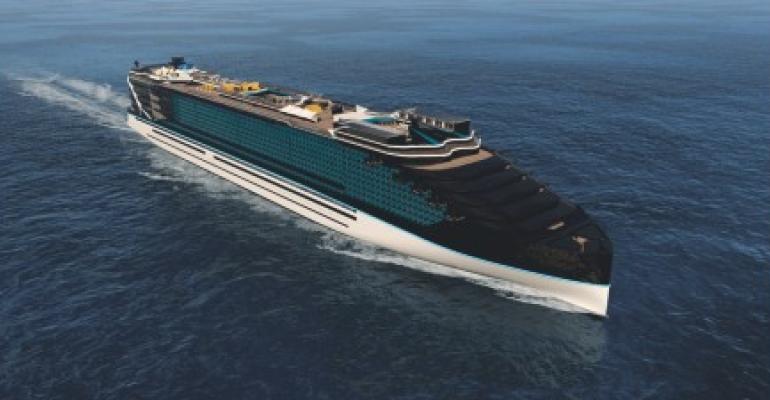This means the system can now be used on seagoing vessels, an important step toward new maritime energy systems and climate-friendly shipping.
In more than 15 years of work, the Meyer Group has already taken several development steps: In the Pa-X-ell and Pa-X-ell2 research projects, the company first researched and developed the use of fuel cells at sea and then their integration into a ship system. Following trials with other partners, Meyer is working with Freudenberg e-Power Systems as a strategic partner.
Silver Nova and AIDAnova fuel cells
Meyer Werft is currently building Silver Nova, which will be equipped with the world's largest fuel cell system on a cruise ship. The vessel will be able to run completely on this system in port without the help of combustion engines. Meyer Werft and Freudenberg e-Power Systems are also working together on the Pa-X-ell2 research project, in which a fuel cell system is being retrofitted on AIDAnova.
Retrofit solutions
The partners also plan further cooperation, not just on newbuilds but also existing ships. To this end, Meyer Neptun Engineering is developing complete retrofit solutions and will work even more closely with Freudenberg e-Power Systems in a joint office in the future to advance joint developments even faster.
'We are hereby achieving another important interim goal in our green shipping strategy. We have been researching and developing fuel cell technology for maritime use for more than 15 years and are now seeing the first successes,' said Malte Poelmann, chief technology officer, Meyer Group. 'The 1,300 engineers in our global design team are already developing the climate-friendly ship prototypes of tomorrow.'
The global design team combines all Meyer Group development and design activities and is looking for further specialists and junior staff for future technologies. Architects for the broad product portfolio of the group with cruise and special ships, Meyer Yachts as well as Meyer Floating Solutions are also sought. In global design, group engineers collaborate at various locations across Europe and mostly digitally, a way of working established during the pandemic.
Hydrogen, methanol and biogas
Meyer Group said developing the fuel cell is an important building block for optimizing the overall ship system with its high efficiency and the integration of decentralized energy systems. At the same time, the group is working on the use of new fuels. For example, the use of regeneratively produced fuels such as hydrogen, methanol and biogas is already possible today.
In marine applications, Meyer said it makes sense to chemically bind regeneratively produced hydrogen, which is necessary for the operation of a fuel cell, in order to achieve a significantly higher energy density. This makes the fuel cell economically and practically viable for oceangoing ships.
Njord
In this context, the use of climate-neutral methanol represents a turning point on the road to maritime sustainability and the achievement of IMO emission reduction targets. As first reported here, Ocean Residences' Njord, to be built at Meyer Werft subject to financing, is hoped to become the world's first superyacht 100% powered by carbon-neutral methanol.
Methanol is a simple alcohol that is liquid under normal ambient conditions and has an energy density about three times higher than liquefied hydrogen. As an important feedstock for the chemical industry, carbon-neutral methanol is characterized by proven manufacturing processes and is widely available, according to Meyer.
The heat required for the reformer from methanol to hydrogen can be obtained directly from the waste heat of the fuel cells. Fuel cell stacks, reformer and control electronics as well as all components for media supply are located in a prefabricated modular unit. This containment design allows easy installation onboard.
Copyright © 2024. All rights reserved. Seatrade, a trading name of Informa Markets (UK) Limited.
Add Seatrade Cruise News to your Google News feed.  |

